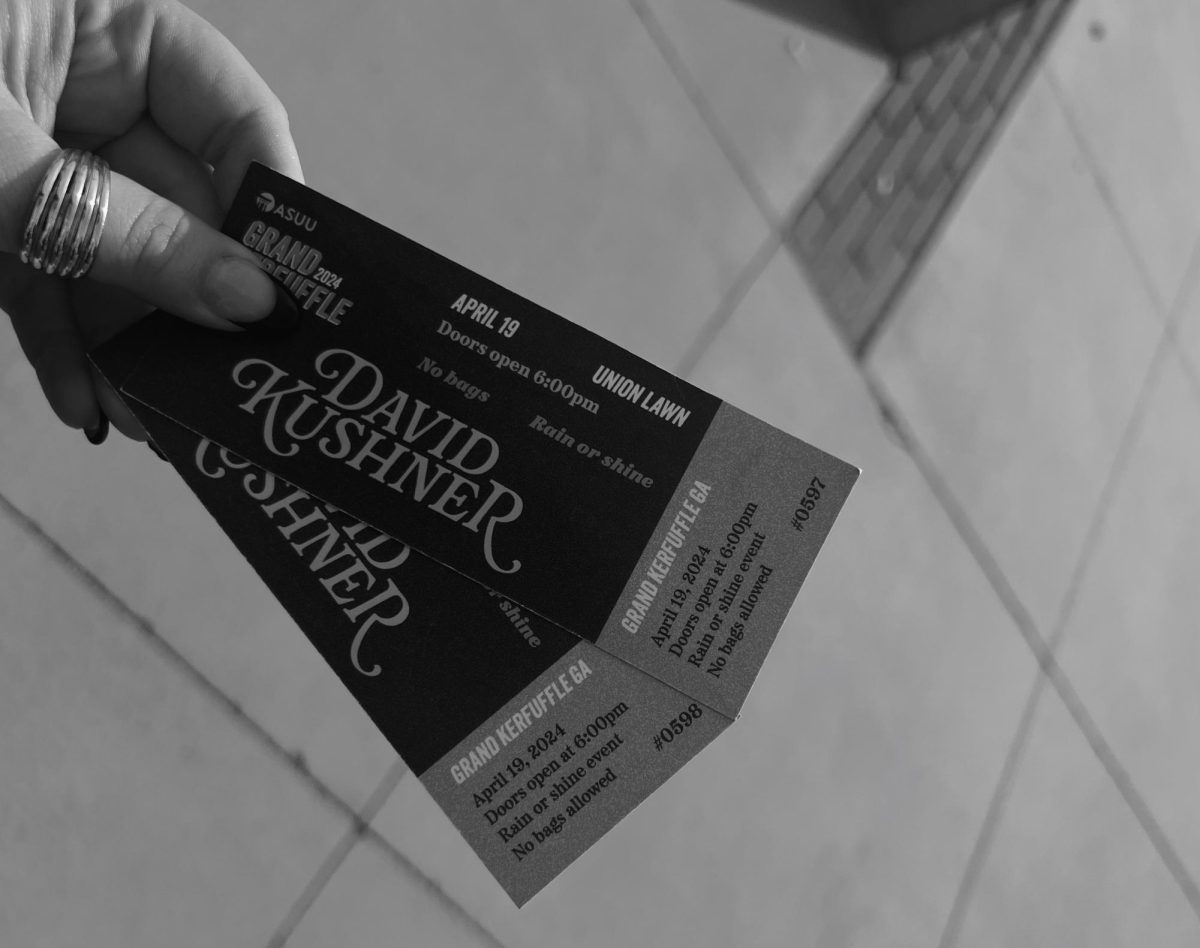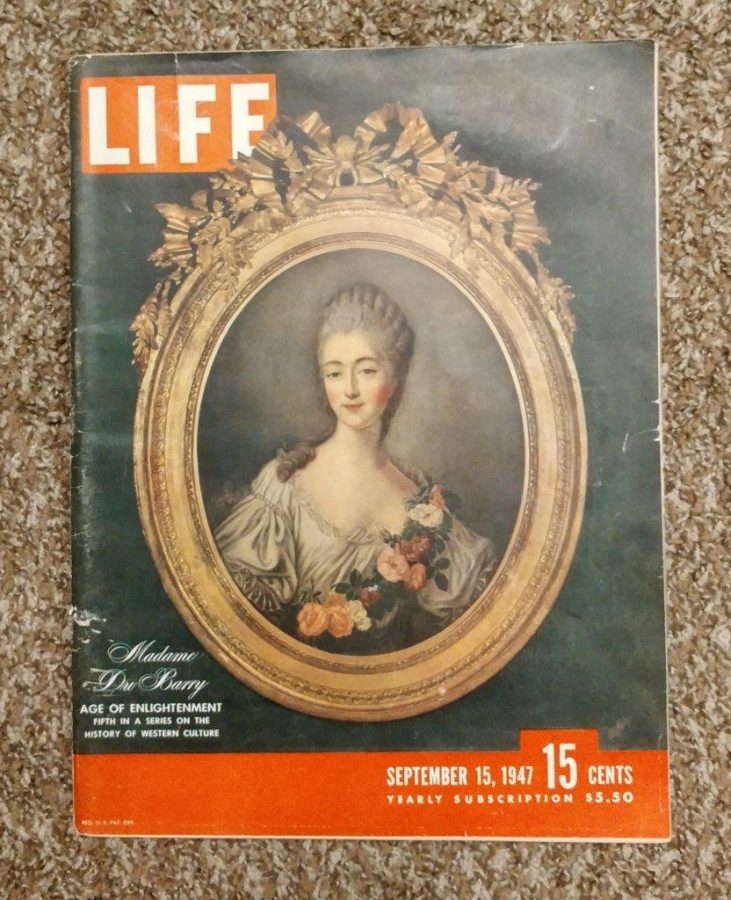Among old belt-buckles, wooden furniture, yard appliances and music records, I found gold at a yard sale: a copy of Life Magazine from Sept. 15, 1947. It’s brimming with history, a time capsule of what life was like almost 71 years ago. So begins “Life in 1947,” a series discussing the fascinating differences between our world now and the world we left behind. First up: women’s work.
Like the magazines of our day, this magazine contains more advertisements than articles. The advertisements reveal more about 1947 society than the articles themselves, in a way. While articles are reflections of the unique, advertisements speak to the mundane and everyday lives of ordinary people.
As I was thumbing through page after page of advertisements for coffee, shampoo, liquor and brassieres, I started to notice a trend. Advertisements for household appliances, clothing, bedding and similar items were generally geared towards a specific audience: women.
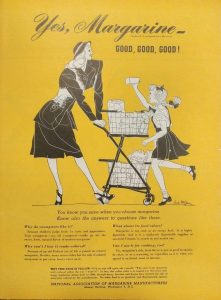
This full-page color-printed advertisement features a smartly-dressed woman and a young girl I assume is her daughter, who is bringing a stick of margarine over to the cart with excitement. The wording below asks questions like, “Why do youngsters like it?” and “Can I use it for cooking, too?” supplied with answers to prove the worth of margarine as an alternative for butter.
Geared toward women, this advertisement reinforces their role as cooks and caretakers of children. With these visuals and words, the advertisement points to the female’s role in the kitchen, assuring her use of margarine will improve her cooking and mothering.
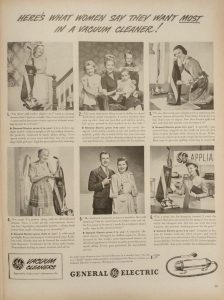
This next advertisement begins with large, bold words informing the reader that, “Here’s what women say they want most in a vacuum cleaner!” followed by six quotes from women about their vacuuming desires. There’s a lot to unpack here.
This advertisement implies women will be using the vacuum to clean the house, so it’s catering to her desires.
The first woman requests a vacuum that is “light in weight,” so she is able to carry it around. This insinuates the physical weakness of the female sex.
The second woman discusses her need to keep the house clean despite her three small children. Like the margarine advertisement, this puts the woman at home to take care of the children.
The fifth woman says, “My husband wants me to have a machine that will stand up!” She is placed in subservience, complying with the desires of her husband.
A vacuum that is lightweight, cleans well and “stands up?” That seems like a pretty good vacuum to me. However, the way General Electric chose to market their vacuum cleaners to women in the house suggests certain societal norms about the role of the woman during this time.
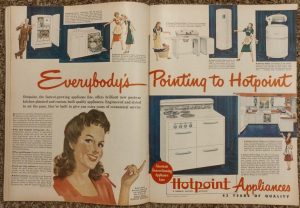
This last advertisement for Hotpoint Appliances practically spells it out.
The massive two-page color advertisement features predominantly female figures pointing out various household appliances. Two women marvel over a dishwasher. Another woman points out an ironing station. Another woman proudly displays her washing machine.
By placing women as the primary figures in this advertisement, Hotpoint suggests women will be the ones using these household appliances.
Based on the advertisements in this 1947 copy of Life Magazine, women held certain roles in the world. They were the cooks, the housekeepers and the caretakers. I saw barely a mention of women in other careers outside of the home.
Although I had some faint sense of how restricted the women’s world was in decades past, these advertisements brought that reality to life. It was shocking. I needed this reminder of how lucky I am to live in a day and age where I can go to college and pursue any career I desire.
It’s not to say that there is anything shameful about being a housewife. It is incredibly difficult work, but being able to work in the home or in the professional world should be a choice every woman is allowed to make for herself.
@TheChrony


